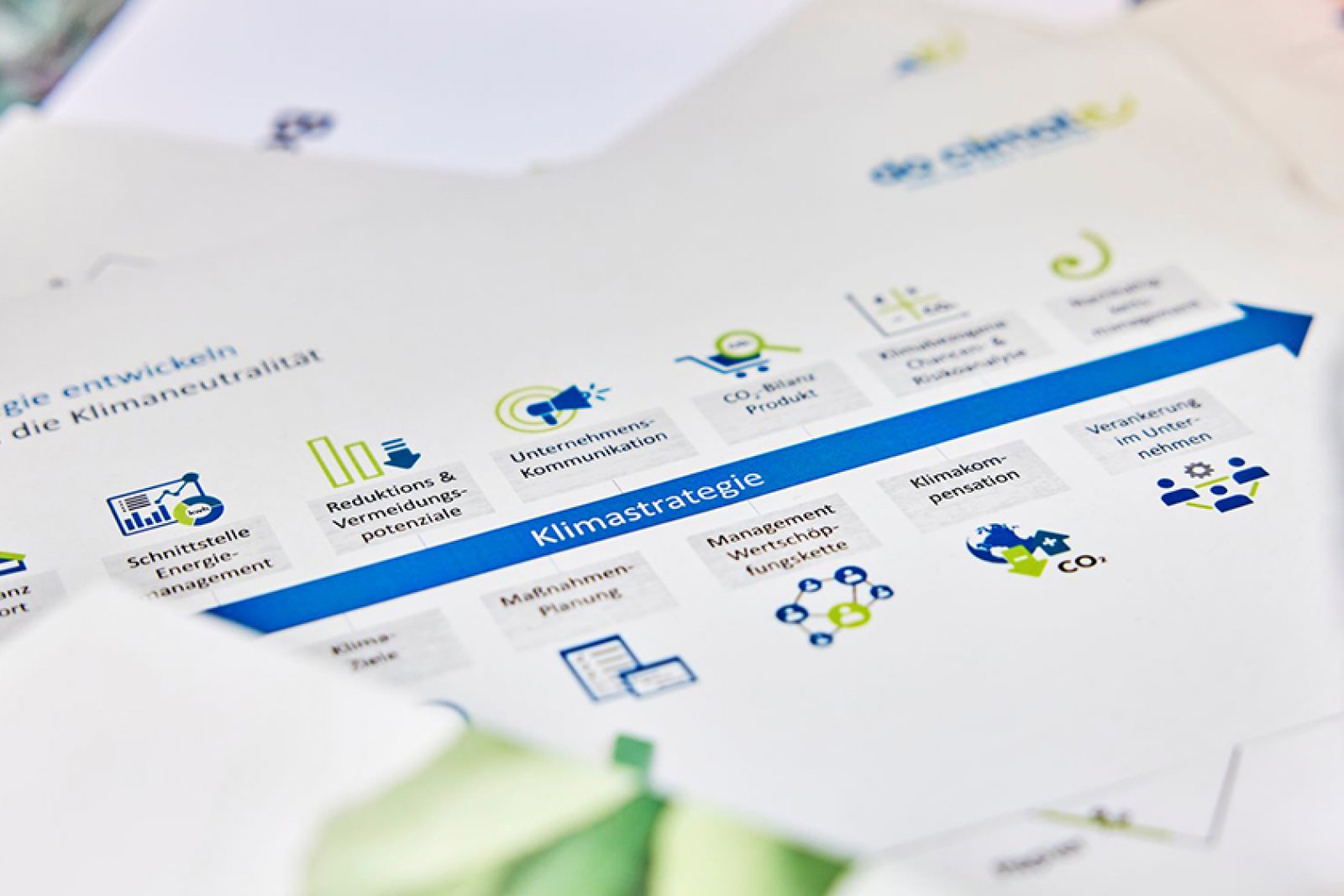NINE TIPS FOR THE PATH TO CLIMATE NEUTRALITY
- Buy electricity from renewable sources – preferably from a provider who is making a significant contribution to the energy transition
- Save heating energy through lower room temperatures and selective heating
- Consider how employees get to work and encourage car sharing, public transport usage or company bike schemes
- Start thinking about vegetarian or vegan offerings for in-house food services and at events, source locally when possible
- Sustainable procurement: is the supplier or manufacturer part of the solution?
- Reduce resource consumption
- Pay true prices
- Always factor in climate relevance when making investment decisions, be mindful of true prices
- Convince others to become socially engaged – in your private sphere, at the company itself, but also in your professional sphere


